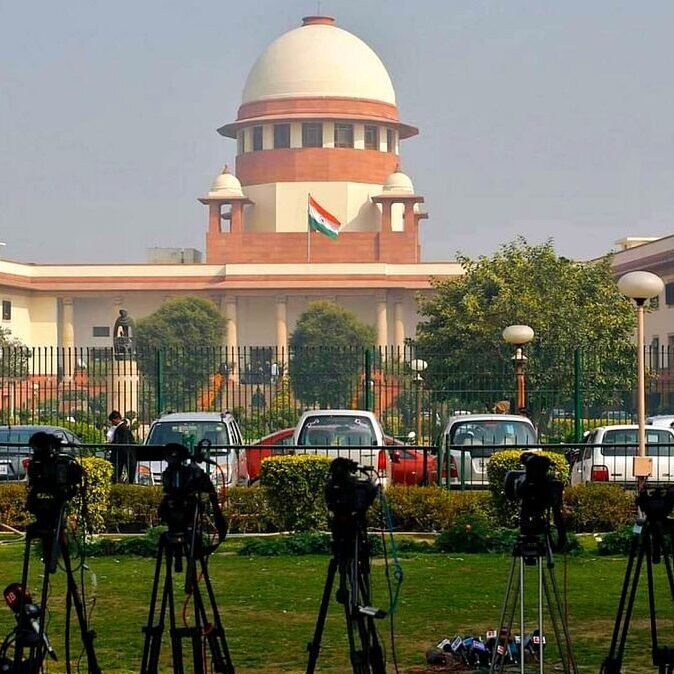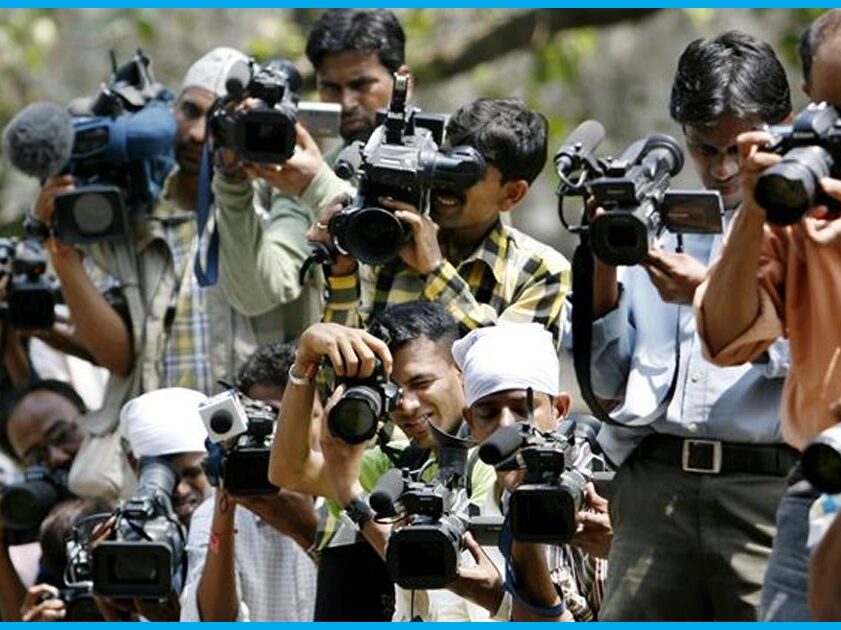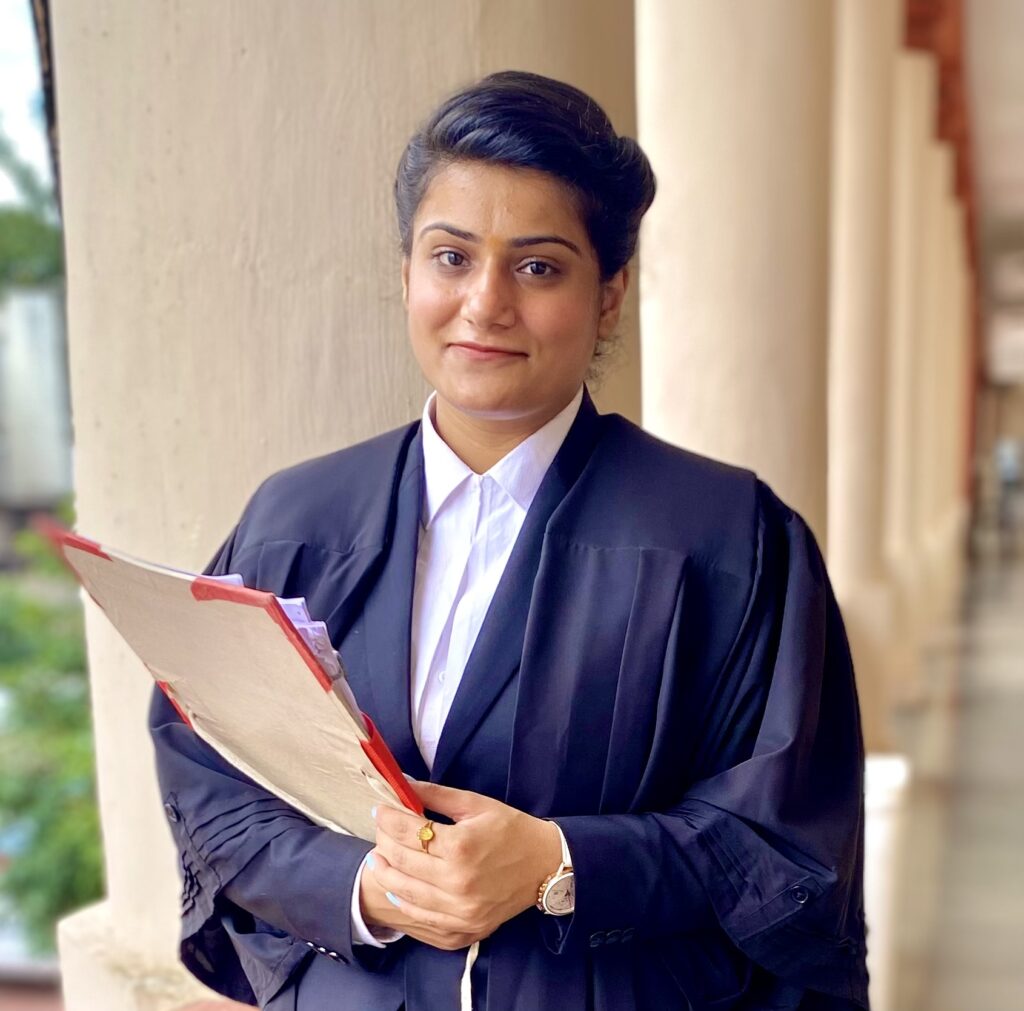-
 25 September 2021
25 September 2021 -
 Posted By Editor
Posted By Editor -
 Under English, News
Under English, News
Media and Judicial Accountability, SC on Journalists in Court Room Proceedings
World’s largest democracy, India functions on three pillars of democracy, the executive, legislature and judiciary. The essence of democracy lies only when it is supported by the opinion of its people. The communication channel that connect the public to the functions of the nation is lately considered as the fourth pillar of democracy, known as the Media.
Thomas Carlyle was the first to call Media as the fourth pillar of Democracy and later it was accepted by different authors worldwide. [1]

Even after being the efficient pillar of democracy, the media struggles with a true sense of freedom in its working. There has been many questions raised in history for restraining their operation which questioned their modus operandi.
The Constitution of India provides an implied right to freedom of press under Article 19(1)(a) after the Supreme Court for the very first time declared it in the case of Brij Bhushan vs. the State of Delhi. [1]
In the case of Romesh Thapar V. State of Madras (1950), it was held that freedom of the press is an essential component of a thriving democracy and this right is not limited to newspapers but to other vehicles of information flow also. [2]
Later in the case of Sakal Papers V. Union of India (1960), the Apex court declared that the freedom of speech and expression can not be taken away from the press but can be restricted only on the grounds of article 19(2).
In recent times, the Supreme Court has once again upheld that the media has right to transpire the court proceedings in the interest of the public.
Special Leave Petition:
On May 1st this year, a Special Leave Petition was filed before the Supreme Court of India by the Election Commision of India challenging the oral observations of the division bench of the Madras High Court. The petition made it clear that more than the remarks of the learned judges, it was the wide media reportage of the remarks which caused deep anguish to the Election Commission. [3]
One of the grounds taken in the Special Leave Petition, the media must only report the final order/judgment of the court since oral observations or communication between counsel and must restrict to put forward opinions.

The Supreme Court observed that the media is playing a vital role in unfolding the judicial process. It has also brought a sense of accountability among judges and fostered citizens’ confidence in the process of judiciary.
Bench of Justices DY Chandrachud and MR Shah said –
“We cannot expect the media not to report dialogues. Oral observations are as important as orders. Unfolding the process of judicial thinking is equally of interest to the public.” [3]
Further, Justice Chandrachud added, “We cannot say the media cannot report contents of the discussions in a court of law. This is of equal public interest…it is on the same pedestal as the final order. The unfolding of debate in the court is equally important and the media has a duty to report. It’s not only our judgments that are significant.” [3]
It was stressed by the apex court that the importance of reporting proceedings is conducted in an open court; these cases are vital sources of public information about the activities of the legislature and the executive. Not all cases are heard in open court; cases involving the privacy of parties, such as matrimonial cases, or matters involving child sexual abuse are held in-camera. [4]

In the era of the Internet, the public seeks an immediate and intelligible update to the laws and rulings of the Courtroom proceedings. The profound language of law takes years of experience and studies for lawyers and judges to interpret and learn. It is difficult for the general public to read and understand the court proceedings, so journalists become a bridge between the public and the court in serving the fine language of law in an easy and simplified manner to comply.
,In my opinion the best in the public interest can be only served if journalists are allowed to freely report the matters. It is a well-established principle of jurisprudence that-
“Justice must not only be done but it must also be seen to be done”.
Concluding Remark:
The two definite reasons why journalists must be allowed to report on observations made by courts during hearings:
- To encourage public confidence in the judicial process.
- To help the law deter crimes in future.
Journalists are representatives of the public and therefore should have the right to attend court cases and be allowed to report the court proceedings.

-Rytham Singh, Advocate
LL.M (Constitutional Laws), PG Diploma (Human Rights)
https://www.linkedin.com/in/rytham-singh-0b88b999
YouTube: Vidhik Shiksha
https://youtube.com/c/manmohanjoshi
For more blogs reach us at www.vidhikshiksha.com
New blog: Right to Information


 Helpline No.:
Helpline No.: 


















